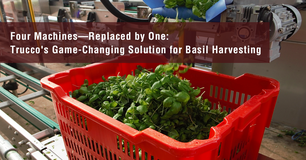The global programmable logic controllers (PLC) market witnessed a strong decline in growth in 2012 due to the uncertain economic scenario in the developed world, most notably in the mature markets of North America and Europe. Since 2013, however, the market has witnessed positive growth across all regions. In particular, emerging regions such as Asia-Pacific are displaying uptrends due to increased activity in the construction, water and wastewater, and power industries.
New analysis from Frost & Sullivan, Global Programmable Logic Controllers Market, finds that the market earned revenues of $10.37 billion in 2013 and estimates this to reach $14.58 billion in 2018. The study covers services, software, modular input/output modules, programmable automation controller as well as large, medium, small and nano PLC. In the coming years, the small and medium PLC segments will be instrumental for market development.
In Europe, the need to enhance efficiency, comply with regulations as well as improve safety and control capabilities are driving the uptake of PLC. Market progress in the rest of the world is primarily fuelled by the desire to optimise assets, engage in reliable process planning, and achieve operational agility.
"With increasing customer demand and intense competition among tier-one companies, the global PLC market is poised to witness a surge in technology and pricing innovation," said Frost & Sullivan Industrial Automation & Process Control Industry Analyst Karthik Sundaram. "Market participants have been developing products with new design and control functions that surpass traditional definitions."
For the innovative wave to have a definite impact, boosting the security features in PLC hardware, software, and the network infrastructure should be a key focus area. As cyber security influences end-user perception of PLC, addressing threats will be equally important for continued market expansion.
"PLC manufacturers must offer robust support services, roll out cost-effective products, and communicate winning value propositions to customers," advised Sundaram. "They should also strive to expand their geographical presence and refine their domain expertise to taste success."






















































